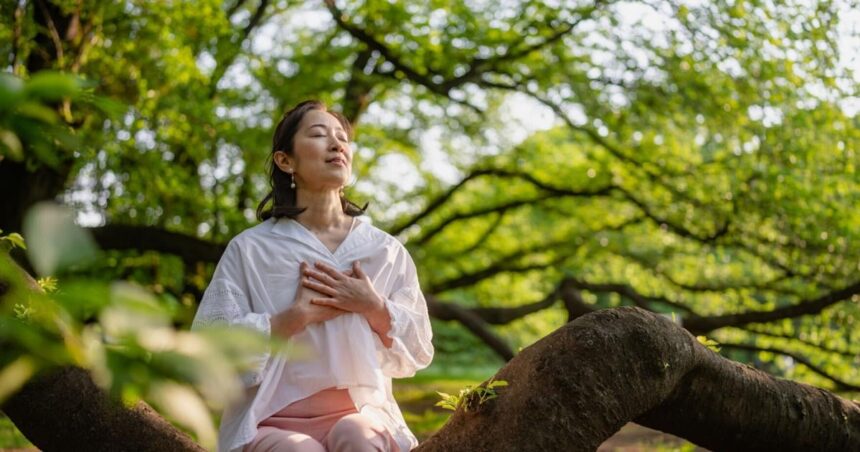Doesn’t everyone feel clean, calm and refreshed after a long, leisurely bath or a steamy shower? There’s a way you can reap those benefits without ever taking off your clothes or getting wet.
The Japanese Ministry of Agriculture, Forest and Fisheries coined the term Shinrin-yoku, the Japanese practice of “forest bathing,” in the 1980s, but the concept has been around much longer than that. For centuries, people with an affinity for nature have been enjoying the peace that comes from spending time in the great outdoors.
What exactly is forest bathing?
By the most succinct definition, forest bathing is simply the therapeutic practice of spending mindful time in a wooded setting. Beyond the relaxing properties of the overall experience, some research suggests that connecting with nature also provides both physical and psychological benefits — just the gentle act of slowly walking through the woods and breathing in the fresh air may offer cardiovascular benefits and lower your blood pressure while also warding off depression, reducing stress and improving mental health. Best of all, anyone of any age and ability level can do it!
People are also reading…

Doesn’t everyone feel clean, calm and refreshed after a long, leisurely bath or a steamy shower? There’s a way you can reap those benefits without ever taking off your clothes or getting wet.
The Japanese Ministry of Agriculture, Forest and Fisheries coined the term Shinrin-yoku, the Japanese practice of “forest bathing,” in the 1980s, but the concept has been around much longer than that. For centuries, people with an affinity for nature have been enjoying the peace that comes from spending time in the great outdoors.
What exactly is forest bathing?
By the most succinct definition, forest bathing is simply the therapeutic practice of spending mindful time in a wooded setting. Beyond the relaxing properties of the overall experience, some research suggests that connecting with nature also provides both physical and





